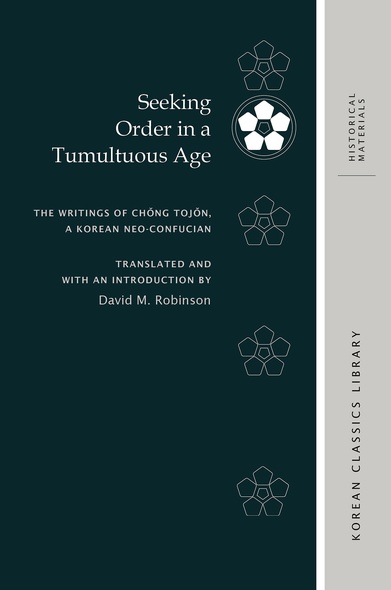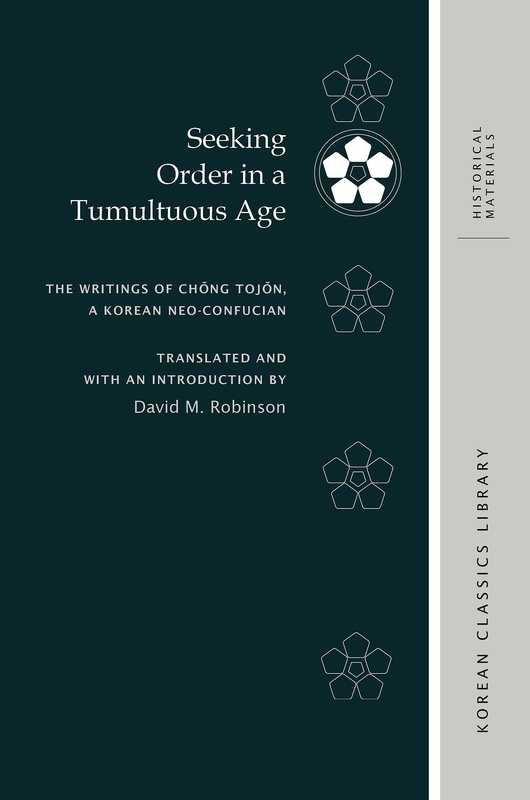Seeking Order in a Tumultuous Age
The Writings of Chŏng Tojŏn, a Korean Neo-Confucian
Chŏng Tojŏn, one of the most influential thinkers in Korean history, played a leading role in the establishment of the Chosŏn dynasty (1392–1910). Long recognized for his contributions to the development of Neo-Confucianism in Korea, Chŏng was both a prodigious writer and an influential statesman before being murdered in a political coup. Seeking Order in a Tumultuous Age charts Chŏng’s rise to prominence amidst the turmoil of the late fourteenth century, when Korea struggled to come to terms with the political, military, and intellectual changes of an emerging new East Asian international order. In addition to providing a clear and accessible introduction to the broader world of fourteenth-century Korea, the book provides a fascinating window into Chŏng as a person through annotated translations of his poetry, letters, and political writings—most of them previously unavailable in English.
Chŏng’s written works reveal a firm belief that Chinese classical traditions and recent intellectual developments on the continent contained vital lessons for Korea. The detailed annotations will allow readers to appreciate the wide variety of classical sources with which Chŏng and his contemporaries were familiar and how these sources were applied to the times. Chŏng had an unwavering faith in educated and engaged men as the preservers, interpreters, and implementers of such wisdom and was adamant that they should be given great power and authority in government.
Seeking Order in a Tumultuous Age will be welcomed by students and specialists of East Asian history and thought as well those wishing to learn more about a chaotic yet vibrant period in Korean history.
A heavily annotated translation of this governance manual takes center stage in Robinson’s tour d’horizon through Ch!ong’s Collected Works (Sambong chip三峯集), which makes readers familiar with various genres of his writings such as poetry, memorials, letters, and so on. The transla- tions are very well crafted; the annotations are likewise scrupulous. This is a major reading for those wishing to learn more especially about the (Korean) Neo-Confucian politico-administrative imagery.
David M. Robinson is Robert H. N. Ho Professor in Asian Studies and History at Colgate University. His current research explores how Chinese and Korean courts adapted to the dramatic transformations precipitated by the Mongol empire’s collapse.






